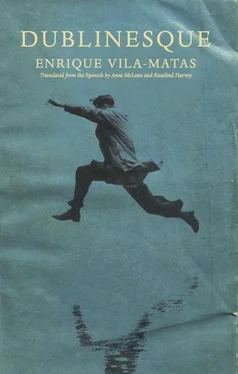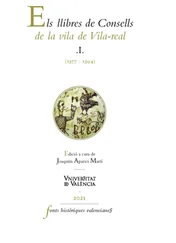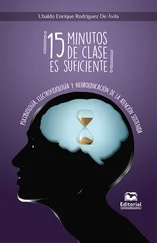A man full of life, he thinks, and at the same time ethereal as a ghost. Who the hell can it be? Could it not be me? No, because I’m not young.
As of today, Celia is a Buddhist. He still hasn’t entered the house, but he’s already been informed of the news. Fine, he says, somewhat bewildered, resigned. And crosses the threshold. And he thinks: once upon a time, marquises went out at five o’clock in the afternoon, and now they become Buddhists.
He’d like to say to Celia that she’s not the only one who can change her personality from one day to the next, to tell her that he feels a little perturbed, as if he were an arrow in a cobwebbed cellar of steel-gray light. But he holds back. “Fine,” he repeats, “it’s fine. I congratulate you, Celia.” He notices the Buddhist decision has affected him more than he thought it would, although he was already convinced that Celia would end up converting to another religion, he saw it coming quite clearly. He lowers his head, goes straight to his study, feeling he needs to take refuge there.
It feels like everything in the house is turning oriental.
He’s a hikikomori , she’s a Buddhist.
“What’s the matter? Where are you off to?” Celia asks in her most affectionate voice.
He decides not to let himself feel duped and shuts himself up in his study. Once he’s there, he looks out of the window and starts meditating. Outside, the daylight is dying. He’s always admired Buddhism, he’s got nothing against it. But arriving home has annoyed him. It feels as if his experience has come out of a novel, and if there’s anything guaranteed to make him genuinely uncomfortable these days it’s things happening in his life that could turn out to be appropriate for a novelist to put in a novel. The way Celia has decided to tell him she’s become a Buddhist seems like the start of a classic conflict story: a wife who all at once has a different ideology than her husband, the first fights and serious disagreements after years of happiness.
If he’s gained anything from giving up the publishing house it’s no longer having to waste hours reading so much garbage: manuscripts with conventional plots, stories that need a conflict in order to be anything. Manuscripts telling the same old pernicious, traditional stories have disappeared from his view, and he doesn’t want to feel he’s inside one of them now. It’s a source of irritation to him that, having been so peaceful for two years — for twenty-six months to be precise — his life has taken this unexpected fictional turn. He loves the daily life he’s been leading recently, and more than most things, he loves his daily world, so tranquil and boring. If someone came to examine his day-to-day life they’d find it hard to see anything exciting about it, let alone to tell anyone else, because really it’s one of those lives in which scarcely anything happens. He leads an existence like a character in a book by Gracq, the writer he chose as the model for his theory in Lyon. That’s why it’s so irritating that this melodramatically inclined event has occurred now. He’s annoyed that everything has suddenly sped up, as if someone wanted him involved in a less slow novel.
He’s fascinated by the charm of everyday life. It’s true that at times he’s worried about having become so blocked, such a computer nerd, and it’s also true that at times he’s worried about leading a life lacking the excitement of before. But in general he repeats a daily mantra that the more insignificant the things happening to him are, the better. As a future member of the Order of Finnegans and a supposed expert on Joyce’s oeuvre, he knows the world functions through insignificances. After all, Joyce’s greatest achievement in Ulysses was to have understood that life is made up of trivial things. The glorious trick Joyce put into practice was to take the absolutely mundane and give it a Homeric foundation. It was a good idea, yes, although it’s never stopped seeming like a con to him. But that’s not enough for him to deprive his Dublin funeral of its symbolism. He doesn’t want to deprive it of the grandeur the occasion requires, even if a requiem for the end of an age in which Joyce reigned is nothing over there. What’s more, without grandeur, the parody would be incomprehensible. On the other hand, this grandiose, symbolic aspect would coexist — just as happens in Ulysses too — with the mundane procession of trivialities that comes with every journey. He can already start to imagine this coexistence: him in Dublin, bidding farewell with a somewhat heroic urge and funereal pomp to a historic period, and at the same time, in contact with the soporific vulgarity of the everyday, that is, buying T-shirts in some big department store, wolfing down a mediocre chicken curry in a restaurant on O’Connell Street and, well, keeping time with the gray rhythm of the prosaic.
Huge contrasts between greatness and the prosaic, between the heroic urge and chicken curry. He laughs. Maybe heroic urges nowadays are something completely vulgar and common. What is a heroic urge anyway? He thinks of it as if it were something very obvious when in fact he doesn’t really know what it is.
“Did you know that in Buddhist monasteries one of the exercises is to meet each moment of your life by living it to the full?” asks Celia.
She’s come into the study, and it doesn’t look like on her first day as a Buddhist she’s going to let him be much of a hikikomori . Riba is surprised because Celia never comes into his room without knocking.
“In Buddhist monasteries they help you to think,” says Celia completely naturally, as if she hasn’t infringed one of their house rules by coming into his study.
“I don’t know what you’re talking about.”
“Really? I’ll explain. In Buddhist monasteries they help you say to yourself, for instance: now it’s noon, now I’m walking across the patio, now I’m going to meet the abbot, and at the same time you have to think that noon, the patio, and the abbot are unreal, they’re as unreal as oneself and one’s own thoughts. Because Buddhism denies the I .”
“That’s something I am not unaware of.”
He observes that the conflict he wanted to avoid is about to happen, and thinks again that in no way does he want to live in a novel. But the fact is, what he feared is happening: it won’t be easy living with someone who’s changed a lot in the last few weeks and who now has a markedly religious world view very different from his own.
Celia thinks she can guess what he’s thinking, and calms him down. She says he mustn’t worry, because Buddhism is gentle, it’s good, and what’s more, Buddhism is just a philosophy, a way of life, essentially just a technique for personal improvement.
One of Buddhism’s meditation themes, Celia explains, is the idea that there is no subject, but rather a series of mental states. Another theme is that our past life is illusory. He should calm down, Celia tells him. Riba doesn’t know what to reply, and says he’s prepared to calm down but he’s not inside a novel.
“I don’t understand,” Celia says.
“Nor I you.”
“But let’s see if you at least understand this. If, for example, you were a Buddhist monk, you’d think at this moment that you’ve started to live now. Are you listening?”
“I’ve started to live now?”
“You’d think that all of your life before now, that alcoholic period of yours and the very one you hate so much and feel so proud of having escaped, was a dream. This is what you’d think, do you follow? You’d think this and also that all of universal history is a dream. Are you listening?”
He is, sort of. The irruption of Buddhism into his life has overwhelmed him. The truth is he preferred her when she used to talk to her mother on the phone every evening, or to her siblings, or her work colleagues about the problems at the museum. Buddhism has come to complicate everything.
Читать дальше












